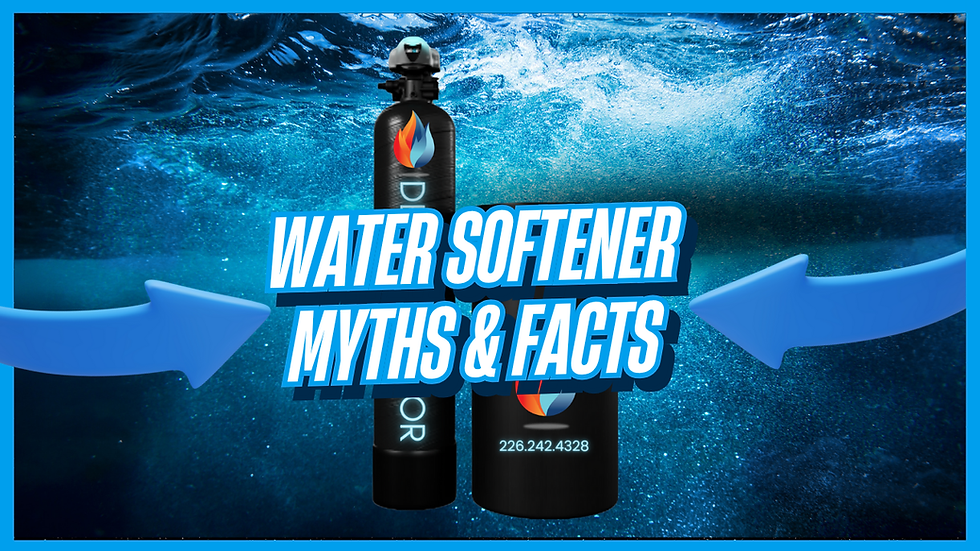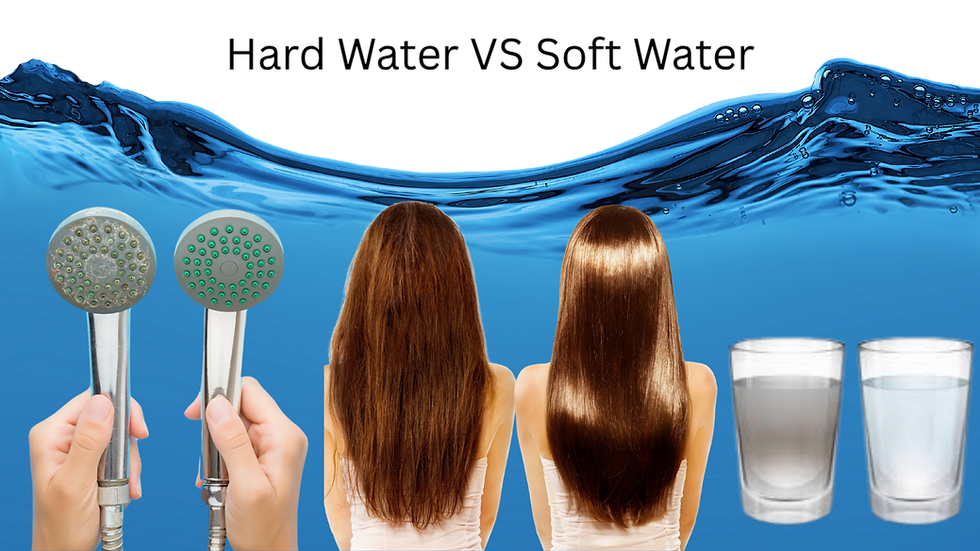Are Water Softeners Really Worth It? Common Myths & Real Benefits Explained
- alyssahrobertson71
- Jun 18, 2025
- 3 min read

Confused About Water Softeners? You're Not Alone.
If you’ve been researching water treatment options, you’ve probably come across a few mixed messages about water softeners—some people say they’re a must-have, while others claim they’re unnecessary or expensive. So, what’s the real deal?
In this post, we’re setting the record straight on how water softeners actually work, separating fact from fiction, and helping you decide if a system is right for your home.
What Exactly Does a Water Softener Do?
Let’s start with the basics.
A water softener is designed to treat hard water, which is water that contains high levels of minerals like calcium and magnesium. These minerals don’t just affect taste—they stick to everything: your plumbing, appliances, hair, skin, clothes, and even your dishes.
A water softener uses a process called ion exchange to remove those minerals, replacing them with sodium or potassium. The result? Soft water that’s easier on your home and body.
5 Common Water Softener Myths (Debunked)
❌ Myth #1: "Hard water isn’t a big deal."
Truth: Hard water is incredibly common in Ontario and can silently damage your plumbing and appliances over time. It also dries out your skin and hair and causes soap scum buildup.
❌ Myth #2: "Water softeners make your water taste salty."
Truth: The amount of sodium added is minimal—often less than what’s in a slice of bread. You won’t taste the difference, and if you want to be extra cautious, you can always add a reverse osmosis filter for drinking water.
❌ Myth #3: "They’re only useful for rural homes."
Truth: Hard water isn’t limited to well systems. Many city water supplies still contain high mineral content. Softening systems are just as useful for urban homes.
❌ Myth #4: "Water softeners waste water."
Truth: Modern systems are designed to be efficient. Many models now use smart regeneration cycles that reduce water and salt usage significantly.
❌ Myth #5: "They’re too expensive."
Truth: While the upfront cost varies, the long-term savings on appliance repairs, water heating, soap, and energy bills easily justify the investment.
Real Benefits That Make a Difference
Still wondering if it’s worth it? Here’s what homeowners notice after switching to soft water:
✅ No more white scale on taps, showerheads, or sinks
✅ Smoother, less irritated skin and shinier hair
✅ Softer laundry and longer-lasting clothes
✅ Lower soap and detergent use (less waste, more savings)
✅ Extended lifespan of water-using appliances (dishwasher, washer, water heater)
✅ Improved energy efficiency of hot water systems
Choosing the Right System for Your Home
Not all water softeners are created equal. Factors like the size of your home, your water usage, and your local water hardness level all influence which model will work best.
At Air and Water Care, we offer a free water test and help you compare top models like:
Clack & Fleck softeners
Smart digital softeners
All-in-one water softener/filter combos
Final Thoughts: Knowledge is Power (and Savings)
Water softeners aren’t just about convenience—they’re about protecting your investment in your home, saving money long-term, and improving your everyday comfort. Don’t let outdated myths keep you from making a smart choice.
Want to know if your water is hard? Book your free in-home water analysis with Air and Water Care today. We’ll test your water and walk you through your options—no pressure, just clear answers.
_edited.png)


Comments